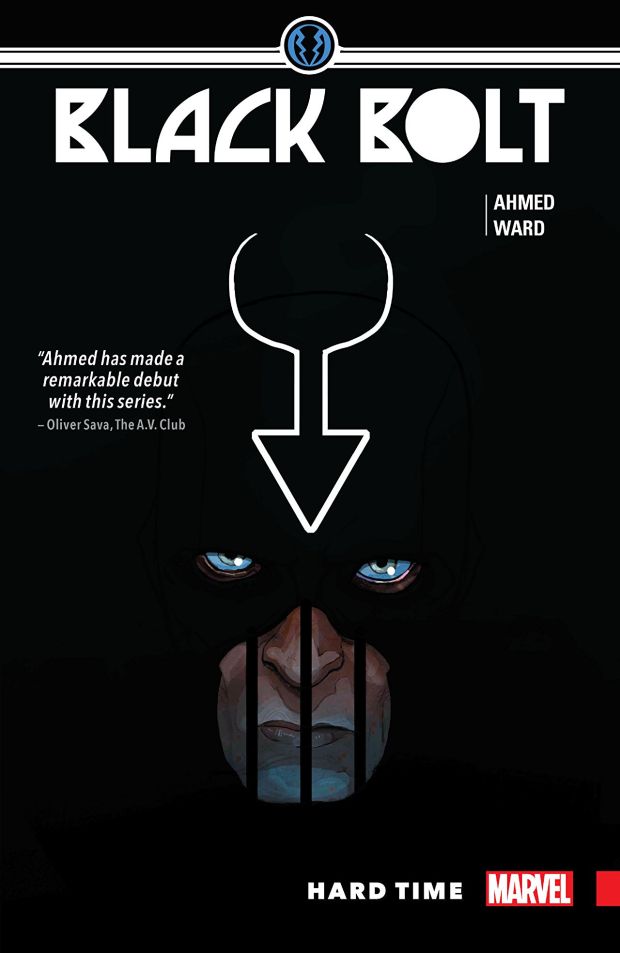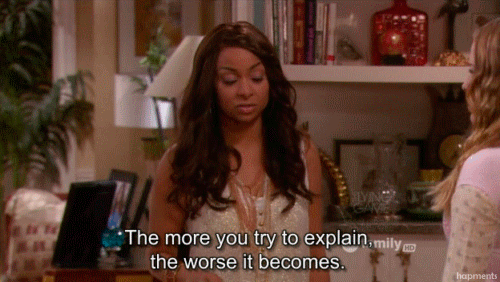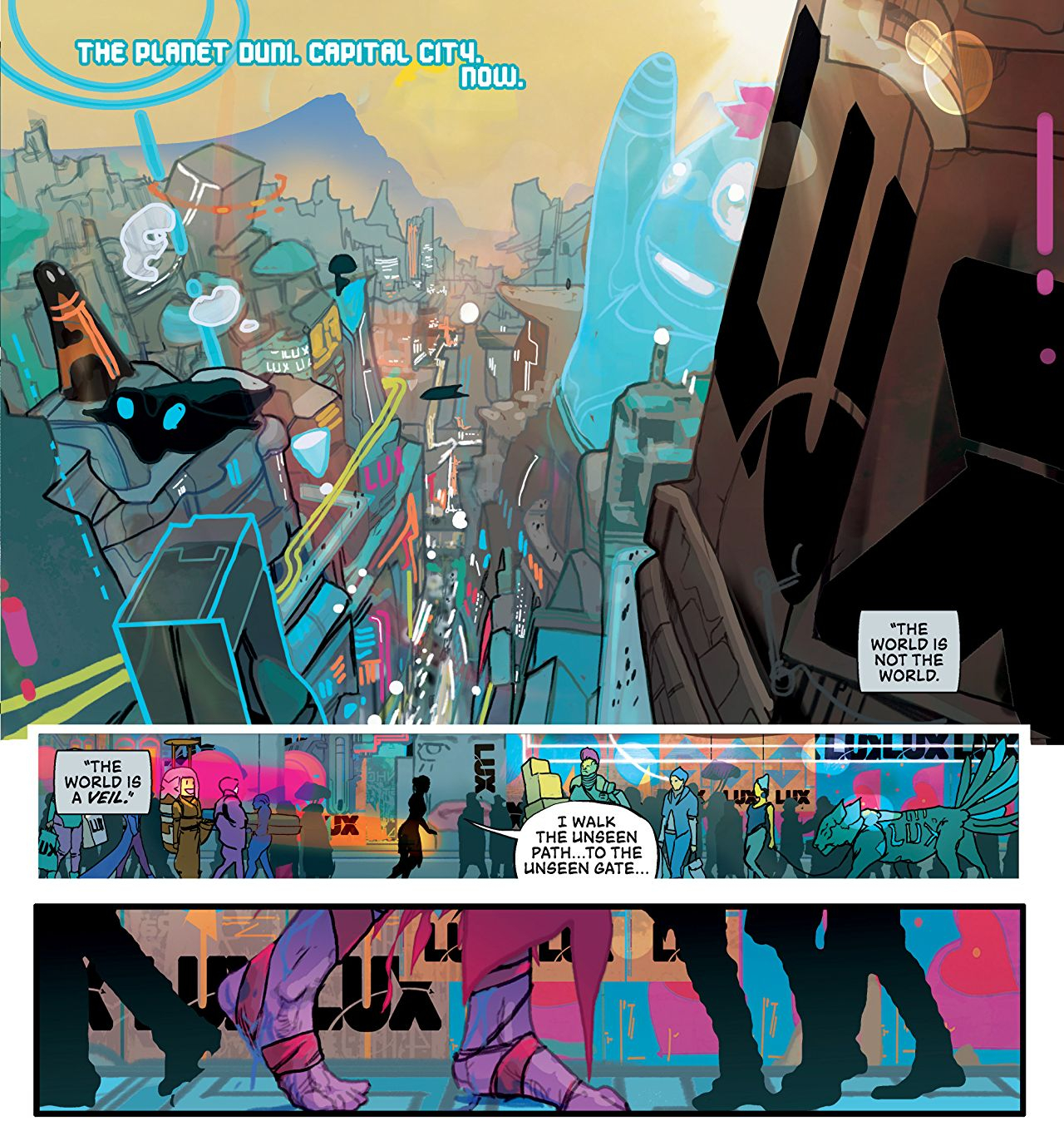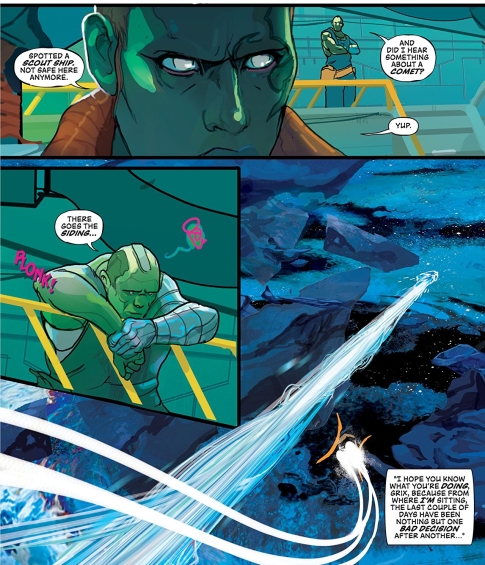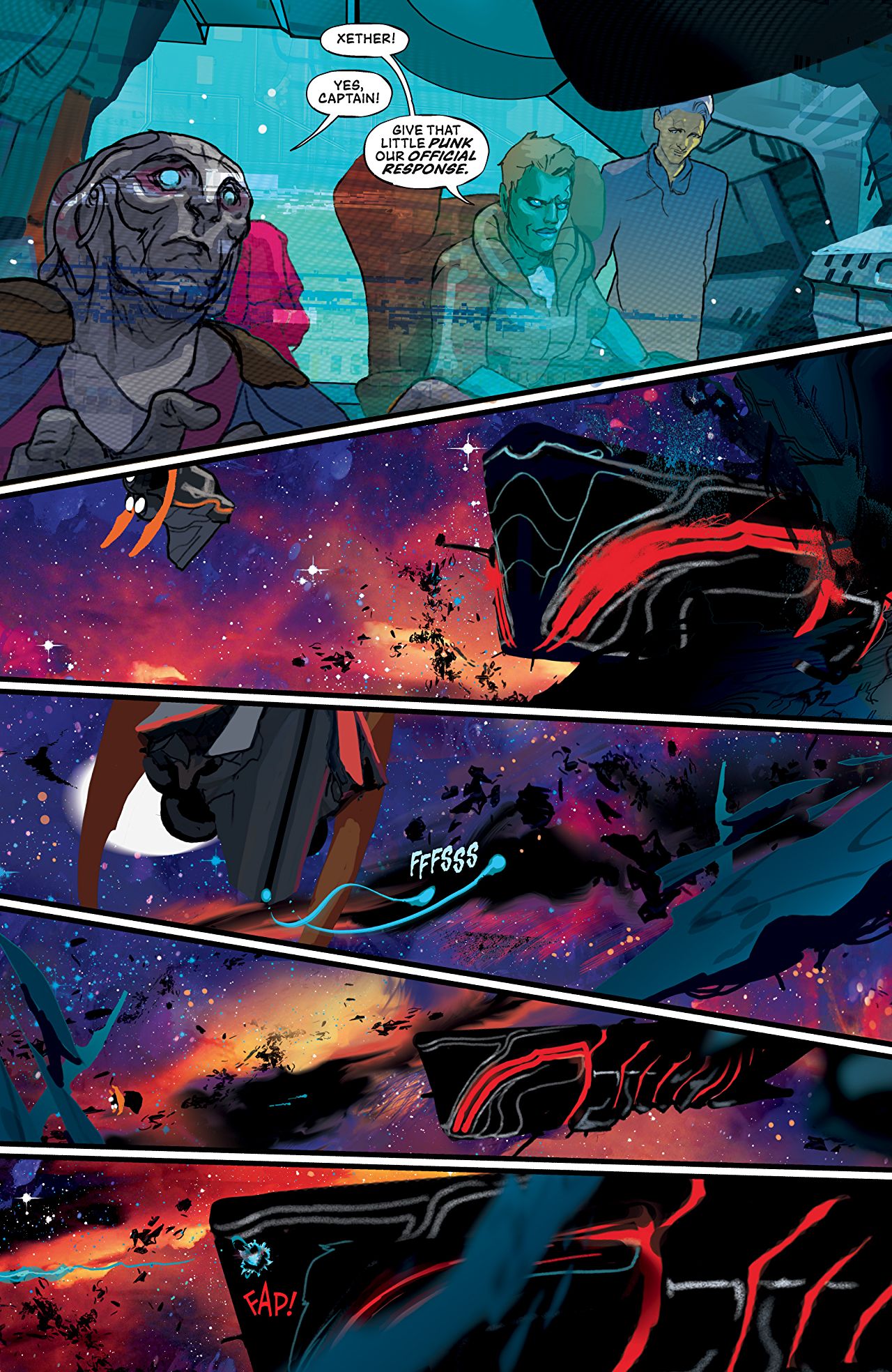by G. Willow Wilson & Christian Ward
collects Invisible Kingdom #6-10
volume reviews one | two
Wilson and Ward’s interstellar space opera continues in volume two. Its first arc combined interesting world-building with progressive characters and Ward’s phenomenal, Eisner Award-nominated art, but it was also bogged down by on-the-nose metaphors of Big Business (Lux) and Religion (The Renunciation).
This second chapter largely deals with fallout from last volume, as banished nun Vess and space captian Grix deal with the consequences of their choices – leaving the Renunciation and exposing Lux’s corruption, respectively. While on the run, Grix and her Sundog crew encounter a space pirate named Captain Turo, who only adds to their problems.
Christian Ward’s art continues to be the highlight of the book. Even though some panels feel unfocused or unfinished, his bold colors and character designs really lend themselves to science fiction. He does the heavy lifting of world building, which is critical in a successful sci-fi story.
However, Wilson’s writing continues to weigh things down. While the metaphors have retreated into the background (for now), the story slows down to a snail’s pace once Turo takes over the Sundog. Not only are we stuck in space, but the Lux/Renunication plot doesn’t move forward until the very end.
It’s even more frustrating that, while it’s amazing to see queer women take the lead in a sci-fi book (even though Grix fits the personality of every space captain), there is barely any character development. I can’t describe Vess’ personality beyond her commitment to a religion that betrayed her, and the other crew members, while recognizable, are barely given any attention.
spoilers this paragraph. There’s also a romance element that has, for me at least, no emotional investment, which is tough when it involves the two protagonists. There’s no clear understanding what Grix sees in Vess and vice versa, especially when Vess’ character isn’t explored. While Invisible Kingdom is science fiction genre first, it’s frustrating to not have any reason to cheer for a romance that will clearly be a bigger part of the story moving forward.
I’ve heard this will be a three part trilogy, and frankly, the fact that there’s one more volume is probably the only reason I’ll read it at this point. (I’m kind of shocked if that’s the case, why this book spent so much time in one place, with both characters and story.) I’m more looking forward to seeing what Ward will create for a climactic ending more than anything else – and perhaps Wilson can turn things around. But the latter looks far more bleak going into the finale.

